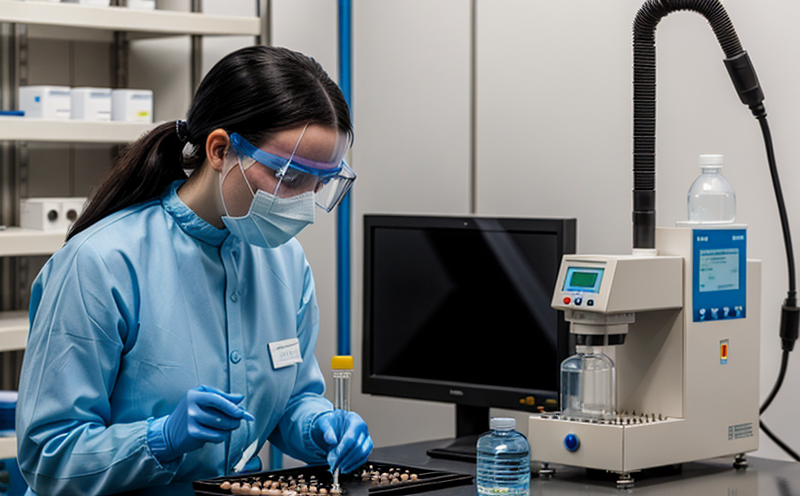Phosphate Residue Profiling Testing
Phosphate residue profiling testing is a critical analytical service tailored to ensure the purity and quality of pharmaceutical products. This specialized analysis helps identify and quantify phosphate residues in drug substances, excipients, and finished dosage forms. Understanding phosphate residues is essential for ensuring product safety and regulatory compliance.
The presence of phosphates can lead to various issues, including potential interactions with other active ingredients, stability challenges during storage, and even health risks if not controlled properly. Pharmaceutical companies must adhere strictly to international standards such as ISO 17025, which govern the competence of testing laboratories for scientific research.
Our laboratory employs advanced instrumentation like Inductively Coupled Plasma Mass Spectrometry (ICP-MS) and High Performance Liquid Chromatography (HPLC), along with other relevant techniques, to conduct this profiling. These methods allow us to detect even trace amounts of phosphate residues accurately.
The process begins with thorough sample preparation, which involves dissolution followed by purification steps if necessary. Once prepared, the samples undergo rigorous analysis using our state-of-the-art equipment. The results provide detailed profiles of phosphate residues, helping clients make informed decisions about formulation and manufacturing processes.
Regulatory bodies such as the FDA, EMA, and WHO require pharmaceutical manufacturers to demonstrate that their products meet stringent quality standards. By offering phosphate residue profiling testing, we support these regulatory requirements while ensuring client satisfaction through accurate and reliable data.
The importance of this service extends beyond just compliance; it also plays a crucial role in enhancing product quality and safety. Clients benefit from reduced risk of contamination issues, improved stability over time, and enhanced overall performance of their medications.
In summary, phosphate residue profiling testing is vital for maintaining the integrity and efficacy of pharmaceutical products. It enables manufacturers to meet stringent regulatory expectations while improving product reliability and safety.
Benefits
The benefits of conducting phosphate residue profiling testing are numerous, particularly in ensuring the quality and safety of pharmaceutical products:
- Enhanced Product Quality: Accurate identification and quantification of phosphate residues help maintain high standards in drug substance purity.
- Regulatory Compliance: Adherence to international standards like ISO 17025 ensures that all tests meet the required regulatory expectations.
- Risk Mitigation: Early detection of potential issues minimizes risks associated with product contamination and stability concerns.
Quality and Reliability Assurance
We prioritize quality and reliability in all our services, especially when it comes to phosphate residue profiling testing. Our commitment is reflected in several key aspects:
- Accurate Instrumentation: Utilizing cutting-edge technologies such as ICP-MS and HPLC guarantees precise measurements.
- Experienced Staff: Our team consists of highly skilled professionals trained in the latest techniques and methodologies.
- Comprehensive Reporting: Detailed reports provide clients with a clear understanding of their results, facilitating informed decision-making processes.
Use Cases and Application Examples
| Application Example | Description |
|---|---|
| Detection of Phosphate Residues in Drug Substances | This application involves identifying and quantifying phosphate residues present in raw materials used directly within the drug formulation. |
| Monitoring Excipient Quality | In this case, we analyze excipients to ensure they meet specified limits for phosphate content. |
| Validation of Manufacturing Processes | This ensures that the manufacturing process does not inadvertently introduce excessive levels of phosphates into the final product. |
| Compliance with Regulatory Standards | Phosphate residue profiling tests are essential for ensuring compliance with international regulations regarding drug purity and safety. |
| Evaluation of Stability Over Time | This involves monitoring phosphate levels in stored samples to assess potential degradation or contamination risks over extended periods. |
| Development of New Formulations | During the development phase, this service helps identify optimal conditions for minimizing phosphate residues while maintaining effective drug performance. |





